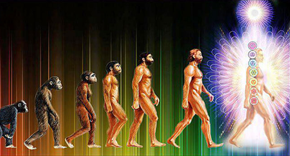by Arjuna Ardagh: My one-on-one coaching with clients, and teaching with groups, focuses mostly on supporting people to discover and express their unique message,

insights, and gifts that could only flow through them and no one else. If your unique gift is not given through you in this lifetime, it means that it will never be given. Quite often, people hire me as a coach to support them to birth, foster, and complete a book.
If you write books, sooner or later you are probably going to talk to a literary agent or a publisher, either before or after your book is written. If you are a filmmaker, you are going to need to talk to a studio. If you want to launch a new product or start a company, you need to talk to investors. Everyone has to have a conversation with somebody someday about how this is going to sell.
The conversation can be tricky. Some choose to ignore this topic completely. “No,” they say,” I just want to follow the creative impulse.” They refuse to do any marketing or connecting with their potential audience, and remain unnecessarily unknown. Van Gogh, William Blake, Emily Dickinson, Thoreau, and many other brilliant minds died in obscurity. None of them paid even momentary heed to catering to the “mainstream”; in fact, one might say that the majority of radically brilliant people go out of their way to question and challenge mainstream values.
If you talk to a publisher or a literary agent today, you will be advised on how to make your work more “mainstream.” “Remember, you are not your target audience,” I have been reminded so many times by well-wishing mentors. Frequently, I have turned in a manuscript I thought was brimming with brilliant insights (just as our cat proudly delivers a dead squirrel to our kitchen as her contribution to the family shopping), only to be told that my book was “preaching to the choir.” This kind of reminder can prove very useful. It trains us to develop discipline and rigor, to weed out prejudice, not make assumptions that are unproven, to seek out values that are universal, and to employ a language that is fresh and accessible.
To be more “mainstream” means to use language and appeal to values that not only apply to you and your close friends but that might also apply to a milk farmer in Wisconsin, or a construction worker in Texas.
To be radically brilliant and to also reach the people you can serve requires you to be able to understand and make conscious choices about the balance between deeply honoring and obeying the impulse of brilliant authentic creativity that flows through you, and how to play the games of marketing and media.
From the very beginning, I always encourage people to NOT try to write a New York Times bestseller.
Instead I encourage my clients to think of ten to twelve people they admire completely, and whose respect means everything, and then to create their book with an aim to pleasing those specific people.
For example, I am writing this book for you now. I have no idea if it will sell dozens, hundreds, or thousands of copies. I have no way to know if it will remain obscure or find a wider audience. I would like to be happy either way. Here are twelve people whose opinion I do care about. If any of these people read the book and like it, I will feel more satisfied than reaching a #1 position on a bestseller list.
- Michael Pollan
- Tim Ferriss
- Lynne Twist
- Chameli Ardagh
- David Suzuki
- Steve Kotler
- John Gray
- Jean Houston
- Alex Ebert
- Barbara Marx Hubbard
- Charles Eisenstein
- Malcolm Gladwell
I would like to ask you to do the same thing now. You are probably reading this book because you have a project going, or you would like to have a project going, to advance the evolution of humanity. Whose opinion would mean a lot to you? Think of ten to twelve people. Think of people who are already established, and whose work you admire the most. As you are crafting your work, keep the potential reaction of those people in your mind as the yardstick for truly giving the gift that you were born to give.
What would it be like for one or all of those people to say, “Yes! That is brilliant!” This will allow you to not just live in a vacuum of creative impulse, disconnected from any readership, but at the same time it will avoid you getting lost in only thinking about how you can make the most money.
If you stay true to the tender impulses of original creative impulse pushing their way to the surface through you, the satisfaction derived from that integrity makes financial reward and fame a secondary benefit. You might sell millions of copies, as Eckhart Tolle did by following this principle. You might remain obscure like Henry David Thoreau. Either way you will remain happily married to your Heart’s True Song, rather than working the streets as a prostitute of the word.









































